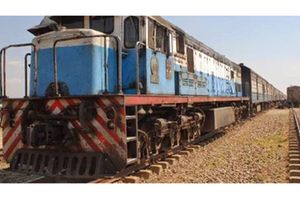Why sugar output is set to rise by 33 per cent

What you need to know:
The country currently produces about 470,000 tonnes of sugar annually, but the government is optimistic that production will jump to 700,000 tonnes by the 2024/25 farming season.
Dar es Salaam. Sugar production in Tanzania is expected to rise by about 33 percent in four years following the approval of six new sugarcane varieties.
The country currently produces about 470,000 tonnes of sugar annually, but the government is optimistic that production will jump to 700,000 tonnes by the 2024/25 farming season.
The government also expects that the sharp rise in sugarcane production will go hand in hand with increased investment in processing capacity. This is the first time Tanzania has approved its own sugarcane varieties.
The approval of the new varieties was made in January this year. It came at a time when sugar factories at Kagera, Bagamoyo, Kilombero, Mukulazi I and II were undergoing expansion.
The director of crop development in the Ministry of Agriculture, Mr Nyasebwa Chimagu, told The Citizen yesterday that following the approval of the varieties, new sugarcane farming projects were being implemented in Ruvuma and Kigoma regions.
“In order to boost sugar production to 700,000 tonnes by 2024/25, farmers across the country have already started planting new varieties, and expansion of factories is in progress,” he said.
Available data shows that demand for both table and industrial sugar increased by over 16 per cent from 610,000 tonnes in 2018 to 710,000 tonnes in 2019.
The government attributes the rise in demand to an increase in the number of new industries that use the sweetener as raw material. Current demand for industrial sugar stands at 165,000 tonnes.
Demand for table sugar is currently 545,000 tonnes, with Kilombero Sugar Company Lim- ited producing 134,000 tonnes.
Other manufacturers with their production volumes in brackets are Manyara (6,000 tonnes), Mtibwa Sugar Estates Limited (39,000 tonnes) and Tanganyika Planting Company Limited (100,000 tonnes.)
Upon completion of its ongo- ing expansion project, Kilombero Sugar’s production capacity will double to 265,000 tonnes per annum.
Ms Hildelitha Msita, Tanzania Agricultural Research Institute (TARI) Kibaha sub-centre manager, said that Tanzania should be proud that it finally has its own homegrown sugarcane varieties.
Before approving the new varieties, the country depended on varieties imported from foreign countries, mostly South Africa and India.
“The approval of our local varieties will enable us meet local demand for sugar, unlike in the past when we imported sugarcane varieties and tested them to come up with varieties suited to our climate and environment,” she said.
Ms Msita added that Tanzania had imported more than 400 sugarcane varieties, but only nine were approved for cultivation in the country.
Among the considerations made was resistance of foreign varieties to diseases and drought. Some of the imported sugar- cane varieties tested and used in the country include Co617, NCo376, N25, N30, N41, R 570, R 579 and R 579.
Tanzania Official Seed Certifi- cation Institute (Tosci) director general Patrick Ngwediagi told The Citizen that the three committees that are under the institute were responsible for conducting research to certify the new varieties.




